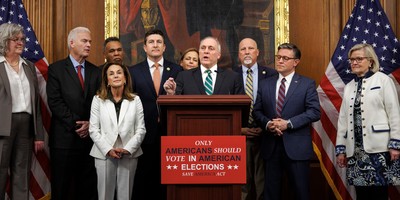It was Nobel laureate economist Milton Friedman who made famous the adage, "There's no such thing as a free lunch." Professor Friedman could have added that there is a difference between something's being free and something's having a zero price. For example, people say that there's free public education and there are free libraries, but public education and libraries cost money. Proof that they have costs is the fact that somebody has to have less of something by giving up tax money so that schools and libraries can be produced and operated. A much more accurate statement is that we have zero-price public education and libraries.
Costs can be concealed but not eliminated. If people ignore costs and look only to benefits, they will do darn near anything, because everything has a benefit. Politicians love the fact that costs can easily be concealed. The call for import restrictions, in the name of saving jobs, is politically popular in some quarters. But few talk about the costs. We know there are costs because nothing is free.
Let's start with a hypothetical example of tariff costs. Suppose a U.S. clothing manufacturer wants to sell a suit for $200. He is prevented from doing so because customers can purchase a nearly identical suit produced by a foreign manufacturer for $150. But suppose the clothing manufacturer can get Congress to impose a $60 tariff on foreign suits in the name of leveling the playing field and fair trade. What happens to his chances of being able to sell his suit for $200? If you answered that his chances increase, go to the head of the class. Next question is: Who bears the burden of the tariff? If you answered that it's customers who must pay $50 more for a suit, you're right again.
In his 2012 State of the Union address, President Barack Obama boasted that "over 1,000 Americans are working today because we stopped a surge in Chinese tires." According to a study done by the Peterson Institute for International Economics (http://tinyurl.com/jdtbktu), those trade restrictions forced Americans to pay $1.1 billion in higher prices for tires. So though 1,200 jobs were saved in the U.S. tire industry, the cost per job saved was at least $900,000 in that year. According to the Bureau of Labor Statistics, the average annual salary of tire builders in 2011 was $40,070.
Recommended
Here's a question for those of us who support trade restrictions in the name of saving jobs: In whose pockets did most of the $1.1 billion that Americans paid in higher prices go? It surely did not reach tire workers in the form of higher wages. According to the Peterson Institute study, "most of the money extracted by protection from household budgets goes to corporate coffers, at home or abroad, not paychecks of American workers. In the case of tire protection, our estimates indicate that fewer than 5 percent of the consumer costs per job saved reached the pockets of American workers." There is another side to this. When households have to pay higher prices for tires, they have less money to spend on other items -- such as food, clothing and entertainment -- thereby reducing employment in those industries.
Some people point out that other countries, such as Japan, impose heavy tariffs on American products. Indeed, Tokyo levies a 490 percent tariff on rice imports to allow Japanese rice growers to gain higher income by charging Japanese consumers four times the world price for rice. Therefore, some suggest that Congress should even the playing field by imposing stiff tariffs on Japanese imports to the U.S. Such an argument differs little from one that says that because the Japanese government screws its citizens, the U.S. government should retaliate by screwing its own citizens. Putting the issue in another context: If you and I are at sea in a rowboat and I commit the foolish act of shooting a hole in my end of the boat, would it be intelligent for you to retaliate by shooting a hole in your end of the boat?

























Join the conversation as a VIP Member